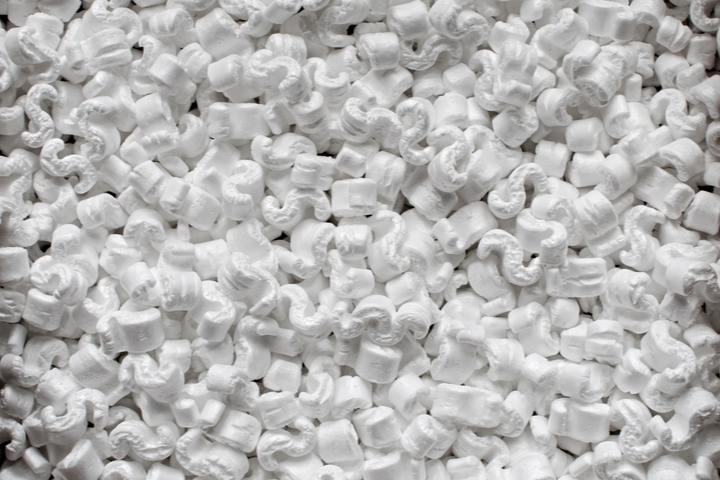EPS
British Plastics Federation counters newspaper's claims about expanded polystyrene
By Plasteurope.com correspondent
The British Plastics Federation (BPF, London; www.bpf.co.uk) has challenged an article published by a leading UK newspaper, which claimed that expanded polystyrene was toxic and unrecyclable.
The British Plastics Federation (BPF, London; www.bpf.co.uk) has challenged an article published by a leading UK newspaper, which claimed that expanded polystyrene was toxic and unrecyclable.
 According to the BPF, EPS meets all relevant international health regulations (Photo: PantherMedia/gitanna) |
The article was published in the Daily Mail newspaper, which has a daily physical circulation of around 800,000 copies. It noted that EPS was “an excellent heat insulator for building construction and an effective buoyancy aid in life vests and rafts” while its “lightness and malleability make it a good packing material, adding cushioning but very little weight”.
However, the piece also said that once expanded polystyrene had been used it cannot be disposed of safely, taking at least 500 years to break down. “In the meantime, it turns toxic,” it added.
Related: Industry initiative Operation Clean Sweep expands presence to 65 countries
Responding to the article, the BPF wrote a rebuttal, which the Daily Mail partly published, pointing out that EPS was 100% recyclable and widely recycled – the association cites a figure of 54% for all such packaging.
The BPF also said EPS met all relevant international health regulations and complied fully with UK Food Standards Agency direct-food-contact regulatory standards.
“It was disappointing that the article failed to acknowledge the high degree of regulation in place to protect consumers,” the BPF’s letter said.
The EPS industry is supportive of, and embraced, the Operation Clean Sweep initiative, the BPF said, which aims to ensure that plastic pellets, flakes, and powders passing through UK manufacturing “were handled with the care they deserve and do not end up in rivers or seas.
“Claims about the prevalence of EPS in the marine environment that are not backed up by scientific studies could arguably distract policymakers from addressing the issue of fugitive plastics in an optimal manner,” the letter concluded.
“At scale and in practice”
BASF’s (Ludwigshafen, Germany; www.basf.com) EPS expert Klaus Ries in an interview with Plasteurope.com also criticised the “bashing” of the material, putting the industry’s EPS recycling rate at 60% at the end of 2023.
A collaboration in France that includes industry associations Elipso (Paris; www.elipso.org) and Eumeps (Brussels; www.eumeps.org) aims to recycle all EPS and XPS packaging collected by 2025.
According to Elipso, the EPS recovery rate in France was at 33% at the start of last year. For industrial and commercial EPS waste, which according to the association represents 60% of EPS packaging, the reclaim rate is at 50%.
Danish association, EPS-branchen (Copenhagen; www.eps-airpop.dk/en) in a mid-2023 report presented to the Ellen MacArthur Foundation (EMF, Cowes, UK; www.ellenmacarthurfoundation.org), said EPS is recycled “at scale and in practice on a global level”.
It puts post-consumer EPS packaging recovery rates in the EU at around 40%, with Norway leading the pack with a recycling rate of over 70%. In Austria, Belgium, China, Denmark, Ireland, Japan, the Netherlands, Portugal, and South Korea, this figure exceeds 50%. North American countries reported recycling rates of around 30%.
A collaboration in France that includes industry associations Elipso (Paris; www.elipso.org) and Eumeps (Brussels; www.eumeps.org) aims to recycle all EPS and XPS packaging collected by 2025.
According to Elipso, the EPS recovery rate in France was at 33% at the start of last year. For industrial and commercial EPS waste, which according to the association represents 60% of EPS packaging, the reclaim rate is at 50%.
Danish association, EPS-branchen (Copenhagen; www.eps-airpop.dk/en) in a mid-2023 report presented to the Ellen MacArthur Foundation (EMF, Cowes, UK; www.ellenmacarthurfoundation.org), said EPS is recycled “at scale and in practice on a global level”.
It puts post-consumer EPS packaging recovery rates in the EU at around 40%, with Norway leading the pack with a recycling rate of over 70%. In Austria, Belgium, China, Denmark, Ireland, Japan, the Netherlands, Portugal, and South Korea, this figure exceeds 50%. North American countries reported recycling rates of around 30%.
15.05.2024 Plasteurope.com [255270-0]
Published on 15.05.2024
